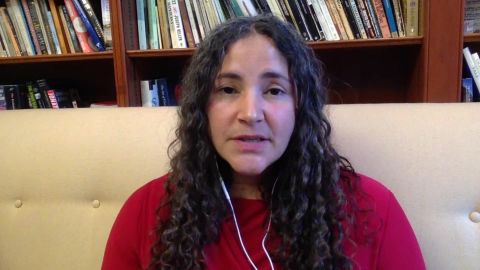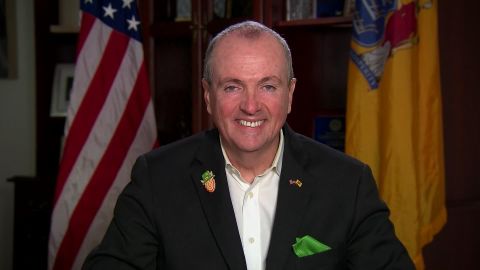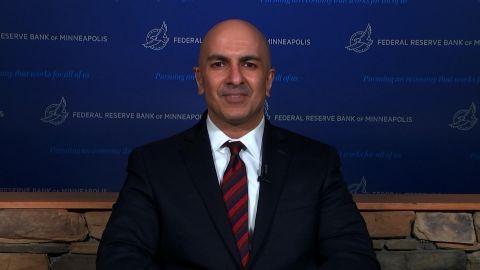Read Transcript EXPAND
CHRISTIANE AMANPOUR: What is your worst nightmare, Governor? Yesterday, I spoke to the commissioner — the health commissioner for the state — for the City of New York, and like many public health officials and many executives, there is a huge concern about the basic lack of beds, emergency ICU beds, that can be used in the worst-case scenario. There’s a huge lack of protective gear for health care workers on the frontlines. There’s a huge lack, obviously, of testing which is so, so important. What is your biggest fear right now?
MURPHY: Well, there are a number of concerns and there’s enormous anxiety in the system. And one jobs, I think, we have as leaders is to be straight with people, to tell them the facts, be transparent and try to do whatever we can to stay out ahead of this. We started working on this in January. I formed a whole of government taskforce on, I think, February 2nd. At every step, we are trying to stay out ahead of this. So, you’re — you have got a number — you have gone through it, Christiane, a number of different variables here. So, in our case, I think the testing regime as we sit here today is beginning to take off, both on intake as well as the actual testing. I think we’ll get to a far better place relatively soon. We look at the potential strain on the health care system. As you mentioned, the number of beds. So, the — you know, in many respects, the hipbone is connected to the thigh bone. So, the extent to which we’re successful with social distancing, we can preemptively take pressure off that health care system. But we can’t assume that that all will be as successful as we want it to be. So, for instance, we are right now aggressively looking at building out more beds, whether it’s reopening closed wings of hospitals, reopening entirely closed hospitals, potentially converting college dormitories that are now not being used into low level quarantine locations. So those are all steps we are taking. If you said to me the singular thing that keeps me up at night other than shortage of beds and the whole reality here, it’s that we didn’t — we weren’t aggressive enough. We didn’t take the sufficient amount of steps early enough. As I’ve said, I think from day one our mantra is get out ahead of this, be straight with people, be as proactive as possible. I go to bed every night, I’m sure I will tonight, asking myself are we doing enough even in the face of an enormous cost associated with what we’re doing? There’s no cost that is too high right now in terms of our ability to save lives and bring the curve down.
About This Episode EXPAND
New Jersey Governor Phil Murphy discusses efforts to limit the spread of COVID-19 in his state. Neel Kashkari, president of the Federal Reserve Bank of Minneapolis, explains the state of the U.S. economy and what the future will look like. Yale psychology professor Laurie Santos discusses how the pandemic could influence mental health across the country.
LEARN MORE


